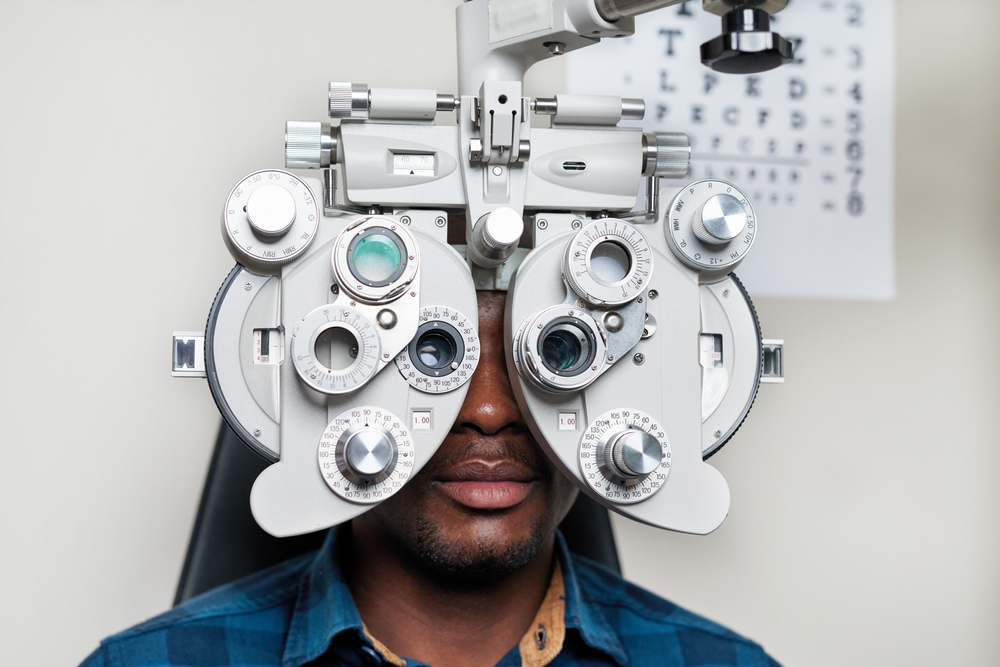
When was the last time you had a comprehensive eye exam? For many, eye exams only come to mind when experiencing vision problems, but the truth is, regular eye exams can reveal much more than just changes in your vision. At Bright Eyes Optometry, we emphasize the importance of comprehensive eye exams not only to maintain eye health but also to detect potential health issues early on.
What Is a Comprehensive Eye Exam?
A comprehensive eye exam is more than a simple vision screening. During the exam, our optometrist will use specialized equipment to thoroughly assess the health of each part of your eye, including the retina, cornea, optic nerve, and blood vessels. By taking a closer look at these structures, we can spot signs of eye diseases as well as systemic health issues that might otherwise go unnoticed.
Eye Exams and Early Detection of Eye Diseases
Many eye conditions can develop silently, meaning they may not show obvious symptoms until significant damage has occurred. Here are a few conditions that routine comprehensive eye exams can help detect early:
• Glaucoma: Often called the "silent thief of sight," glaucoma can lead to irreversible vision loss if not detected early. During an eye exam, our optometrist can measure intraocular pressure and examine the optic nerve for early signs of glaucoma.
• Cataracts: Cataracts typically develop gradually and can cause blurred vision, glare, and difficulty seeing at night. Early detection can help you make lifestyle adjustments to manage the condition and plan for potential treatment options if needed.
• Age-Related Macular Degeneration (AMD): AMD affects the macula, the part of the retina responsible for central vision. Early detection through retinal imaging and examination can be essential in slowing its progression.
Eye Exams Reveal More Than Eye Diseases
The eyes are uniquely connected to the rest of the body, making them a window into your overall health. Through an eye exam, our optometrist can often detect early signs of serious health conditions such as:
• Diabetes: Diabetic retinopathy, a common complication of diabetes, is detectable during an eye exam, even before symptoms appear. By identifying early signs of this condition, our team can alert you and your healthcare provider, allowing for prompt management.
• Hypertension (High Blood Pressure): Changes in the blood vessels within the eyes can indicate high blood pressure, potentially leading to serious health issues if left untreated. An eye exam may reveal signs of hypertensive retinopathy, which can prompt further testing.
• High Cholesterol: High cholesterol can sometimes present as deposits in the blood vessels in the eyes, which may be visible during an eye exam. Early detection can allow you to work with your doctor on lifestyle changes or medications to manage cholesterol levels.
• Autoimmune Disorders: Some autoimmune diseases, such as lupus and rheumatoid arthritis, can cause inflammation in different parts of the eye. Eye exams can sometimes reveal signs of these conditions, leading to earlier diagnosis and treatment.
Why Routine Exams Matter
While one eye exam may reveal important information, regular exams allow us to track changes in your eye health over time. This historical perspective is vital for detecting subtle changes that may signal the onset of disease. At Bright Eyes Optometry, we recommend scheduling an eye exam at least once a year, even if you’re not experiencing vision problems. For those with preexisting health conditions or a family history of eye disease, more frequent exams may be advisable.
Empower Yourself with Preventative Eye Care
At Bright Eyes Optometry, we can help you protect your vision and overall health. Through comprehensive eye exams, we not only provide you with clarity of sight but also empower you with knowledge about your health. Early detection is key to preventing complications and maintaining a higher quality of life.
Schedule your next comprehensive eye exam with Bright Eyes Optometry and take a proactive step towards safeguarding your future health. Contact our office in Red Bank, New Jersey, by calling (732) 605-0300 to book an appointment and experience the benefits of a thorough, attentive eye care experience.




